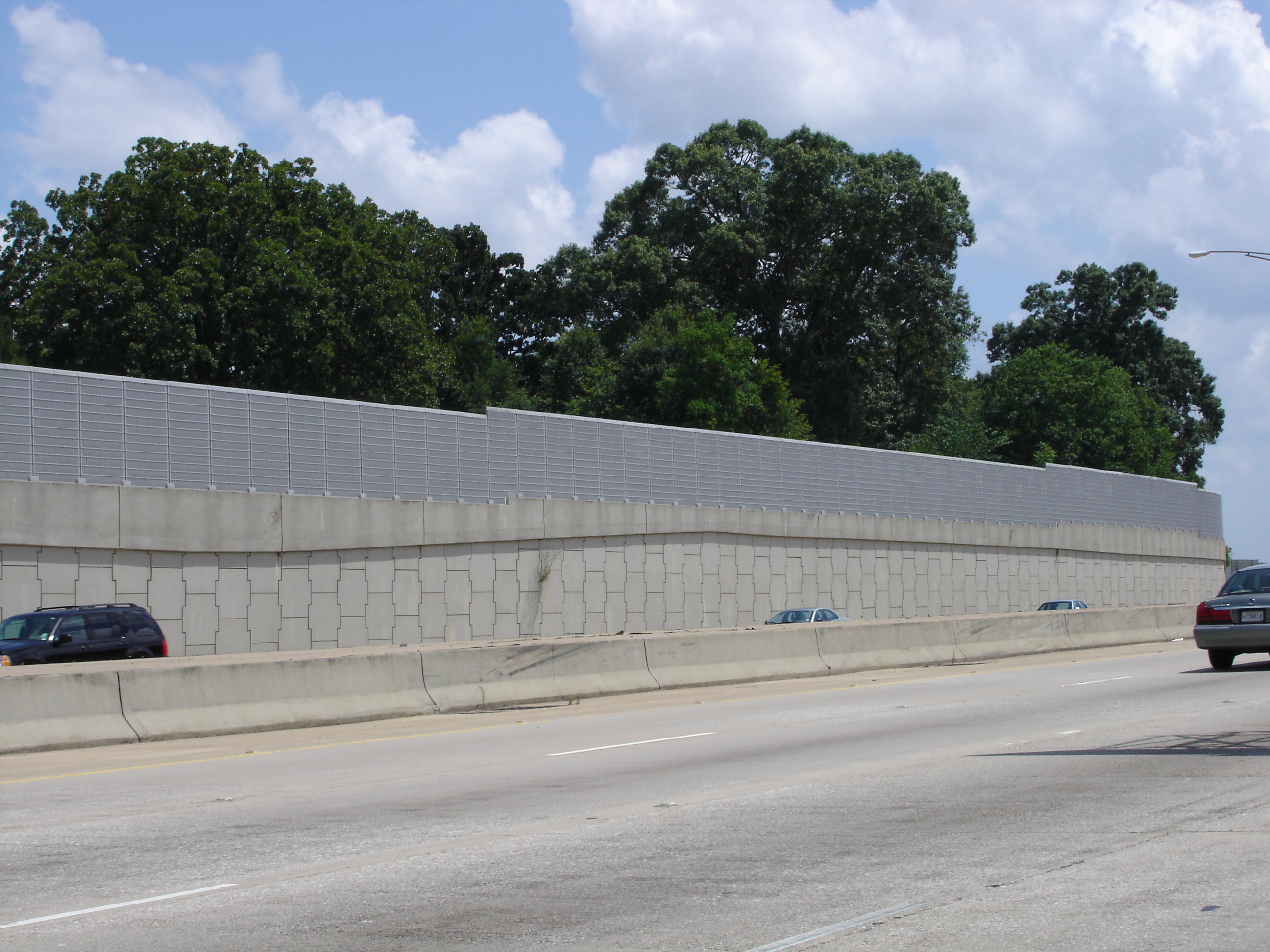More people = more cars = bigger roads = more noise. If you live or work nearby a busy road or highway, you know firsthand how disconcerting and annoying the noise coming from passing cars and trucks is. Trying to find ways to tune out the noise or cope with it may not work too well.
Highways and interstates that are near neighborhoods or businesses can interfere and create problems for people trying to work or live their life normally. Noise pollution created by highways can cause unwanted stress and possibly other health problems if it is prolonged.
While both the federal and state governments have made efforts to address the issue of highway noise and its adverse impacts on society, their traditional remedy has been to place large, sound-reflective concrete barriers on the worst offenders. While concrete is still a prominently used “solution,” research shows that sound-absorptive highway barrier walls have shown to reduce noise significantly.
Learn more about our sound absorbing wall panels.
Fortunately, there are solutions out there to help combat the interruption that road noise has on everyday life. Sound-absorptive barrier walls have shown to be an excellent solution to reducing highway noise. Instead of reflecting noise where it bounces off everything in an unpredictable and uncontrollable way, absorptive walls actually stop the noise from going anywhere else.
Learn why our noise barriers are better than concrete sound barriers.
Highway Sound Barriers
Fortunately, the development of highly-effective and aesthetically-pleasing sound-absorbing noise barriers like the SonaGuard System has proven to be a more effective option than concrete for highway applications. Our SonaGuard system is a good choice for new construction when there are no existing walls along the highway.
Not only do these highway noise barriers significantly decrease noise levels for nearby homeowners and businesses, they provide a pleasing visual screen for the unsightly chaos of traffic and road noise.

Highway Sound Barrier Wall Cost
According to The U.S. Department of Transportation and Federal Highway Administration, in 2010, the average cost for highway noise barrier walls per square foot was $32.
Although that is the average, actual cost is heavily dependent on the site-specific variables such as wind load or type of application as well as the material being used for noise reduction.
For the most realistic cost estimate, consulting with someone who specializes in sound mitigation would be the way to go for the best estimate possible.
Who Pays for Highway Sound Barriers?
There are two different types of projects when it comes to sound barrier walls along a highway.
Those types are Type I and Type II
Type I is when it is new construction and Type II is when the sound barrier is being added to an existing highway.
When funding Type II, it must meet certain requirements, such as a certain noise level, in order for The Department of Transportation to provide any type of funding.
Typically, if sound abatement is deemed necessary for highways, state departments of transportation will step in and determine whether the site qualifies for funding of sound barrier walls. They often include sound barrier walls in their proposals for federal aid if it is determined the project needs them.
Funding is typically only for new construction or road expansion because federal laws and regulations do not require the building of noise barrier walls along existing highways. If state departments decide it is necessary to build sound barrier walls along an existing highway, they are liable for funding and costs (fhwa.dot.gov).